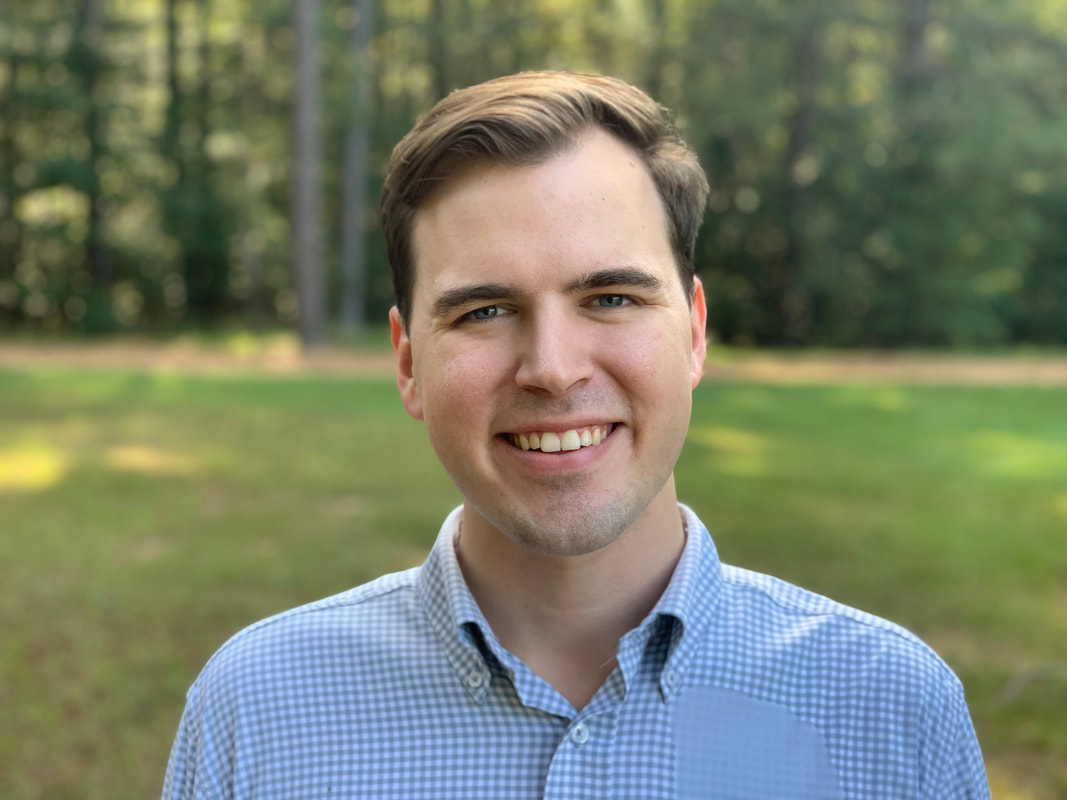Reframing the Dream: "What if..."2/16/2021 One of the joys of Student Ministry is seeing the interests, talents, and dreams of students develop over time. I have seen students begin 7th grade with ambitious (and often unrealistic) dreams, only to see them set their hearts on a God-given mission in high school or early college. Likewise, I’ve also seen two other groups of students. One group simply wonders aimlessly into their college experience or work-force career after high school. They have no sense of purpose or desire. They simply do a job to get a paycheck. The other group has purpose and desire, but it is their own sense of purpose and desire. They have set their own course and have a desire in and of themselves. Of these three groups, the first—the group who sets their hearts on a God-given mission—is the smallest and most overlooked of the three…yet it is also the most desired group…sorta.
When I was a student, my Youth Pastor would often encourage us to consider how God might use us should we set our hearts on his kingdom. He would also say that “everyone wants students to set their hearts on God’s mission…until it’s their own children who set their hearts on God’s mission.” I now better understand this statement. The call of God is always to follow Jesus (Remember the old hymn, “Wherever He Leads I’ll Go”?). The way the call is fulfilled will look different for everyone, but the call is always to follow Jesus. That might mean abandoning the desire/goal/plan to pursue a Medical Degree, Education Degree (as was the case for me), a career that brings in six-figures, and the list goes on. It means that one might be called to move to an impoverished country to live a life on mission for the glory of God. It might mean leaving behind family and friends to move to a new city/town in the US to live missionally in a community deprived of the Gospel. To be clear, there is nothing wrong with wanting to be a doctor, or teacher, or the CEO of a company. However, there is something wrong with it when we remove God from the equation. I have talked with countless students who have a plan and a desire for what they want to pursue after High School. Their dreams are as magnificent as they are grand. As they tell of their dreams, I sit and listen with enthusiasm. I ask questions and encourage them to dream big. Sadly, the dreaming cannot go on forever and so I ask what is generally a bubble bursting question: “That’s awesome! Just one thing. Have you ever consider that God might want to do something different with your life or use those skills and dreams in a much different manner than what you’re talking about?” The look that usually comes to their faces is one of disappointment, shock, intrigue, and even perplexity. For some, they know God is not calling them to pursue all that they have talked and dreamed about. For others, they simply have not considered it and are disappointed that they might be called to pursue a different path but are intrigued by the possibilities. Still others are simply perplexed and shocked by the very notion that God would want to use them. As we approach the start of preparations for high school graduation, it is not too late to help students reframe the dream. This is not the sole job of student workers, but rather a cooperative effort between parents, student workers, and godly mentors to simply ask our students: “What if God would use _________ for his glory? What could that look like?” What might these conversations look like as we have them? Well, I think they could go something like this: Student: I want to be a doctor and practice medicine in New York City (where I know I can make lots of money). Adult: Okay. That sounds like a good plan. But what if God would want to use you and your medical degree full-time on the mission field for his glory? OR: Student: I want to be a teacher in a high-end private school where I know I’ll be taken care of and will have great students. Adult: Teaching is great! But what if God would want to put your skills and ability to work in a public school where Gospel-influence is basically non-existent so that you can share Jesus with students, parents, and faculty/staff? OR THIS: Student: I want to get an education and poly-sci degree and then become a politician and make real change. Adult: That’s an idea. And there’s nothing wrong with wanting to do politics. But how long will that change last, really? What if God would want to use you and your skills and abilities in the local church to proclaim his gospel, which will bring eternal change to lives of people. Student: But I can do that [make change] in politics. Adult: Yeah, you can make change. But what good will that do for the Kingdom? Student: *sits in disappointed silence. * ___ Today, I’m answering God’s call because a Godly influence was willing to have the last conversation you just read with me (Both my youth pastor and I knew what God was calling me to do, but I was hesitant.) As we help students look toward the future, we must be careful to not only dream with them, but to remind them that God has a plan and purpose for their life (Jer. 29.11; Mt. 28.18-20; Acts 1.8; Phil. 1.27-30; 1 Thess. 5.16-18, Jude 3). We must help them reframe the dream in light of God’s eternal glory and purpose. We’ve been commanded to seek first the kingdom of God and his righteousness (Mt. 6.33) and that applies to all of our pursuits, whether it be marriage, education, career, family, and the list continues. As we help reframe the dreams, we might discover that God would use our students the exact way they have been talking about, and that’s okay. Whatever he might call us to, he has called us to reflect his love, grace, and mercy to a world that is in desperate need of it. So yes, God can (and does) use Construction Workers, Waiters, Managers, Garbage Men, Delivery People, Doctors, Politicians, Teachers, and countless others for his Kingdom and His glory. Whatever our students might be called to, may we remind them that God will use their skills, abilities, and desires for his kingdom and may we be found to be their cheerleaders as they answer God’s call. -KT P.S. If your student is called to ministry and is called to pursue theological education, I recommend Leavell College of the New Orleans Baptist Theological Seminary. I am thankful for the influence of the professors and I know that they will provide sound theological education and practical training for ministry as your actively serves Christ and His Church
0 Comments
Defy the Logic of the Past?2/9/2021 The Super Bowl is one of the largest and most watched sporting events in the world; it often becomes the topic of conversation for a few days. While many watch the Super Bowl, a good number of people, if they’re honest, only watch the Super Bowl for the commercials (I am one of those). Usually, the day after the big game, there is a compilation video of the best ads that were aired.
This year is no different; a compilation video was produced. We laugh at many, gasp at some, and others we totally dismiss. Ultimately, the commercials that are aired during the Super Bowl reflect where our society is at. Just consider Jeep’s commercial. The company used their airtime to make a plea for unity—which is the current political talking point of some. However, the reality is that our nation is anything but united—regardless of how many times it is published in a major newspaper or spoken by a politician. (For more on this, see today’s edition of “The Briefing” with Albert Mohler.) Even so, for some, this is where our nation is at: a place of unity. So, the commercial reflects the current political wave. Likewise, Logitech’s commercial is also a reflection of our society and it is not a good reflection at that. The commercial ends with the words: To create the future, we must defy the logic of the past. We must defy logic. The words are emphatic and while I’m sure we could spend a great deal of time parsing out their statement, I choose to take them at face value. We live in a time when there is no longer a recognition of absolute truth. Now, notice the words I just used…there is no longer a recognition of absolute truth. The failure to recognize something does not negate its reality. You know that and I know that. As a Disciple of Christ, I affirm and embrace the reality of an absolute truth. Any intellectually honest person does, too. For instance, just consider the principle of gravity: “Whatever goes up, must come down.” Gravity is true for everyone, even if one denies its existence. As a Student and College Pastor, I meet students who recognize (and others who deny) the existence of an absolute truth. Why not? The entirety of Gen Z (2000-2015), and now every other living generation, is constantly inundated with contradictory “truth” claims. Just consider these headlines from the SnapChat Stories today (2.9.2021): “My Twin Brother is Now My Sister;” “Love Don’t Judge: We Have 2 Bedrooms—One for Each of My Lovers;” “I’m pansexual, demisexual and non-binary.” All three headlines agree with each other: Your gender, sexual preferences, and the entirety of your life is defined by you and only you. By themselves, and in a world devoid of any absolute truth, these “truths” can be true. However, we know that there is an absolute truth because there is an all-powerful, all-knowing, and ever-present Creator (Gen. 1; Col. 1.15-20). This Creator, who is God himself, has made creation to function in a certain way. Unfortunately, in our sinfulness, humans have chosen to exchange the glory of the immortal God for images resembling mortal man, birds, four-footed animals, and reptiles. Therefore, God delivered them over to disgraceful passions (Romans 1.24-26). The Apostle, under the inspiration of the source of truth, went on to write that these passions have led to unrighteousness, evil, greed, and wickedness. They are full of envy, murder, quarrels, deceit, and malice. They are gossips, slanderers, God-haters, arrogant, proud, boastful, inventors of evil, disobedient to parents, senseless, untrustworthy, unloving, and unmerciful. Although they know God’s just sentence—that those who practice such things deserve to die—they not only do them, but even applaud others who practice them (Romans 1.29-32). As youth ministry leaders (and parents...if you fit into that category), we must seek to speak the truth God’s Word into the lives of those we have been given the opportunity to lead. When society preaches the Gospel of Gender Fluidity, we preach the Gospel of Jesus Christ. When society preaches the Gospel of whatever “Gospel” is preached today , we preach the Gospel of Jesus Christ. We preach the Gospel of the One who is the way, the truth, and the life (John 14.6). We point our young people back to the truth of God’s Word and pray that their hearts and ours would be enlightened so that you may know what is the hope of his calling, what is the wealth of his glorious inheritance in the saints, and what is the immeasurable greatness of his power toward those who believe, according to the mighty working of his strength (Ephesians 1.18-19). As the Lord answers this prayer, we know that he will equip us to share the truth of the Gospel with those who do not yet know him. Friend, there is an absolute truth and here it is:
The truth of the Gospel gives us our true identity, purpose, and direction. The One who has always been, always is, and always will be is the one who defines truth. Not us, as we are here but for a moment. We are not the Creator, but the created; therefore, we must operate under the Creator’s truth. So, who is your source of truth? Is it the Lord Jesus Christ, who came into the world to save sinners (1 Timothy 1.15) or is it you, who’s wisdom is ultimately foolish (1 Corinthians 3.19)? -KT __ *Article Updated for syntax and grammar issues on Wed., Feb. 10, 2021. **All Scripture quotations are from the Christian Standard Bible. Kreig ToddChild of God. Archives
August 2023
Categories
All
|



